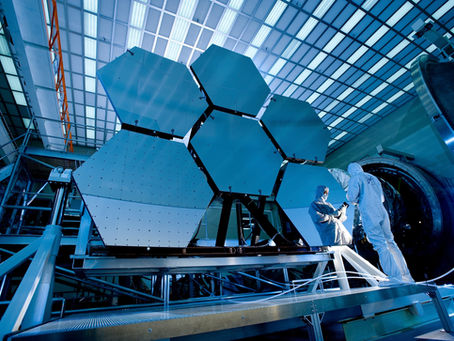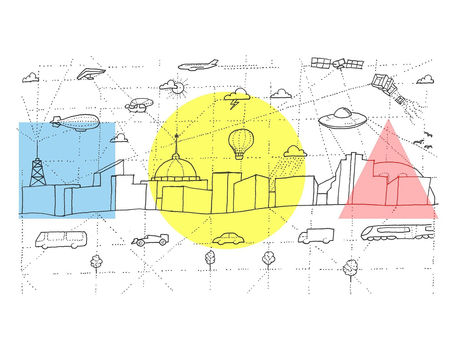top of page
Start Reading!
Search


Color of The Moon
What's the color of the moon? It's depend on the time of night and certainly we see a different tint of the Moon in every country...

STEM To Go
Dec 27, 20223 min read


Astronauts Food in Space
Space food is a type of food product created and processed for consumption by astronauts during missions to outer space

STEM To Go
Aug 27, 20225 min read


What Makes Bodies of Water Have Different Colors?
Water is essentially a color liquid. But some bodies of water turn either green , dark blue, light blue, etc. Read to find out how these...

STEM To Go
Aug 6, 20223 min read


How Were Stars Used for Navigation
Stars are amazing little specks in the night sky that many people see as just insignificant, bright dots in the sky, however, they are...

STEM To Go
Apr 24, 20222 min read


The James Webb Telescope: A Game Changer for Astronomy
NASA has launched its biggest, most expensive, and most powerful telescope yet. The James Webb Space Telescope will rocket into the...

STEM To Go
Feb 27, 20223 min read


2D Shapes
Read this article to gain a basic understanding of the common 2D shapes! Circle In a circle, any point you can think of that is on the...

Stem to go
Dec 18, 20211 min read


What is the Nitrogen Cycle?
The nitrogen cycle is essential to our Earth and its balance of nutrients and resources. Read to find out why it's so important!

Stem To Go
Dec 17, 20213 min read


Volcanic Eruption in Space!
You can see them in Jupiter's moon Io. You can find some on Neptune's icy moon Triton. Volcanoes erupting so explosively that they reach...
spacenerd1940s
Oct 14, 20213 min read


Why is Pluto Not a Planet?
On February 18, 1930, Pluto was discovered by Clyde W. Tombaugh. Pluto, which was once the ninth planet, but did not meet the...

STEM To Go
Aug 8, 20212 min read


The Science Behind Allergies
Allergies are usually hereditary, which means the genes can be passed down from parents to offspring. However, even if both parents have...

STEM To Go
Jul 25, 20213 min read


Bees: A Plant's Friend
Bees are one of the most well-known insects, but how much do you actually know about them? Keep reading to learn all the buzz about bees!...

STEM To Go
Jun 23, 20213 min read


The Great Red Spot
The Great Red Spot is like Jupiter’s birthmark; Jupiter isn’t itself without its red dot. But what exactly is the Great Red Spot? To put...

STEM To Go
Jun 16, 20212 min read


Patterns of Inheritance
There are six different types of patterns of inheritance. They include simple Mendelian genetics, codominance, polygenetic traits,...

STEM To Go
May 30, 20214 min read


Newtonian Gravity vs. General Relativity
Newton's law of universal gravitation and Einstein's theory of general relativity are two fundamental ideas about gravity in physics. But...

STEM To Go
May 12, 20213 min read
Auroras, the beautiful light shows in the sky
An aurora, which is sometimes referred to as northern lights, is a natural display in the Earth’s sky, usually seen in high-altitude...

STEM To Go
May 9, 20213 min read


How Do Erasers Work?
How are you able to get rid of pencil marks with erasers? Read to find out!

STEM To Go
May 7, 20212 min read
What is Electromagnetism
Electromagnetism is the science of charge and of the forces and fields associated with charge. Electromagnetism consists of two aspects;...

STEM To Go
May 2, 20213 min read


What is Down Syndrome?
What is Down syndrome? What are the causes? Is there a treatment? What is Down syndrome? Down syndrome is caused when a human has 47...

STEM To Go
May 2, 20213 min read


Apollo and Artemis: NASA's Twin Programs
The Apollo Program carried out by NASA in the 1960s and 1970s marked the great scientific achievement with the landing of the first men...

STEM To Go
Apr 14, 20214 min read
Why Halogens Are The Most Reactive Nonmetal Group
Halogens are highly reactive, non-metallic elements found in group 17 on the periodic table. Currently, the group halogen includes the...

STEM To Go
Mar 14, 20212 min read
bottom of page
